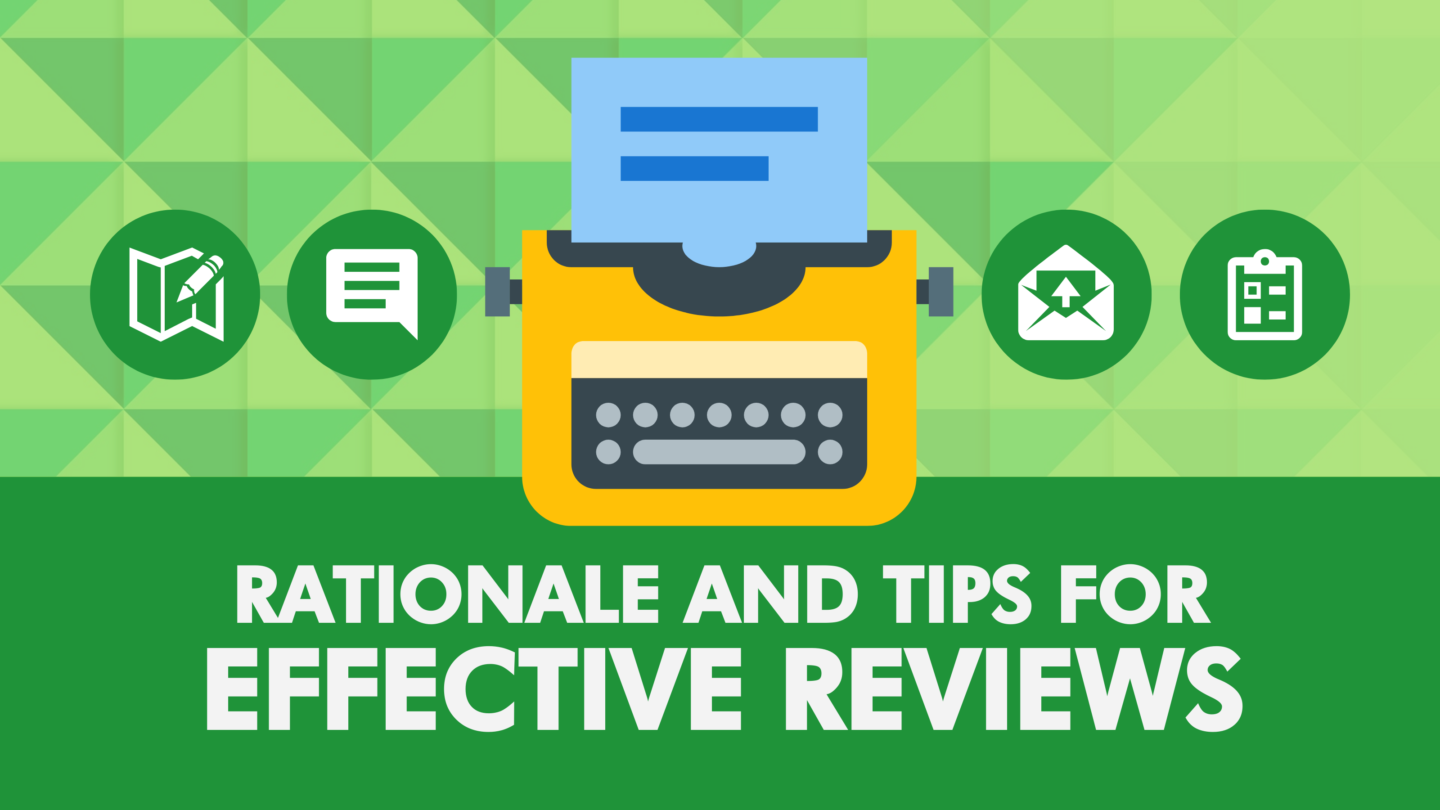
Rationale and Tips For Effective Reviews
By: Tony Kerekes
For years, I have used an analogy with managers, asking how many sit down with their spouse or partner for an anniversary dinner and pull out a document complete with notes on items your loved one did well or could have improved, over the course of the last year. An annual event is not the way we build relationships and dialogue in our daily lives. In a survey of Millennials*, 85% indicated they would feel more confident if they could have more frequent performance conversations with their manager. More on this topic in 2020, but if you are conducting reviews at year-end, here are some tips for managers.
Commonly Reported Issues*
Tips for Managers
Possible Script
32% ask for a more open dialogue, as they dislike the fact that reviews don’t allow them to share thoughts on their performance.
Coach managers to allow the employee to summarize and talk about the year from their perspective. As each area is discussed, the employee should share their views. As relevant, allow time to develop a solution together and gain buy-in on next steps. Use the sales adage, ask questions and let the customer talk twice as much as you do.
“What went well?”
“What do you think you should start doing differently to optimize your performance?”
“What do you believe to be are your strengths and how can I help you to continue to grow?”
62% felt “blindsided” by a performance review and 22% have called in sick because they were anxious about receiving their review.
Outlook calendaring makes booking easy, but managers should provide some context to the review meeting, the process and share a general positive insight when booking the meeting to limit anxiety.
“Let’s connect and discuss how your progress towards your goals is going, I look forward to meeting with you.”
40% felt the feedback is too vague and 47% felt that their review makes them feel like they can’t do anything right.
Most employees are solid performers and the discussion can focus on that and specifics. Managers have been coached to provide sandwiched feedback, position the negative with two positives to help reduce the overall negative feeling.
“I agree, your performance would excel if you did the following: ____”
“I think your greatest value-add and contributions are in the areas of ____.”
59% complained their manager is unprepared to give feedback.
Remind managers to space out reviews to allow prep time, they would not go to an important annual client meeting or budget review unprepared. Demonstrate to employees they are important and their manager cares about them. Ask the employee to share or send ahead three areas/outcomes they are the most proud of in the last year and why? This gives a good starting point.
(Requested of employee at least 48 hours ahead of scheduled meeting):
“In preparation for our upcoming performance discussion, can you tell me at least three areas that you think your greatest contributions to date have been?”
28% may quit – they left a performance review with a view to start looking out for another job
Managers can make sure the review is an open discussion with action plans that look ahead, the feedback is not a surprise (clear expectations and regular feedback) and the rating is fair.
“Do you think my comments fairly reflect your performance or am I missing anything?”
“Are you comfortable with our next steps in the action plans suggested?”
74% reported feeling “in the dark” about how their managers and peers think about their performance
A solid review helps with managers prepared with specific examples of where an employee met, exceeded or did not meet expectations and what went well along with the gaps. Ideally, Set goals and have regular discussions, although a bit late now, managers can kick off goals in 2020. We suggest setting out what “meets” and “exceeds” looks like as the goals are created.
“Let’s talk about specific examples of performance that note the difference between what “meets” and “exceeds” look like.”




